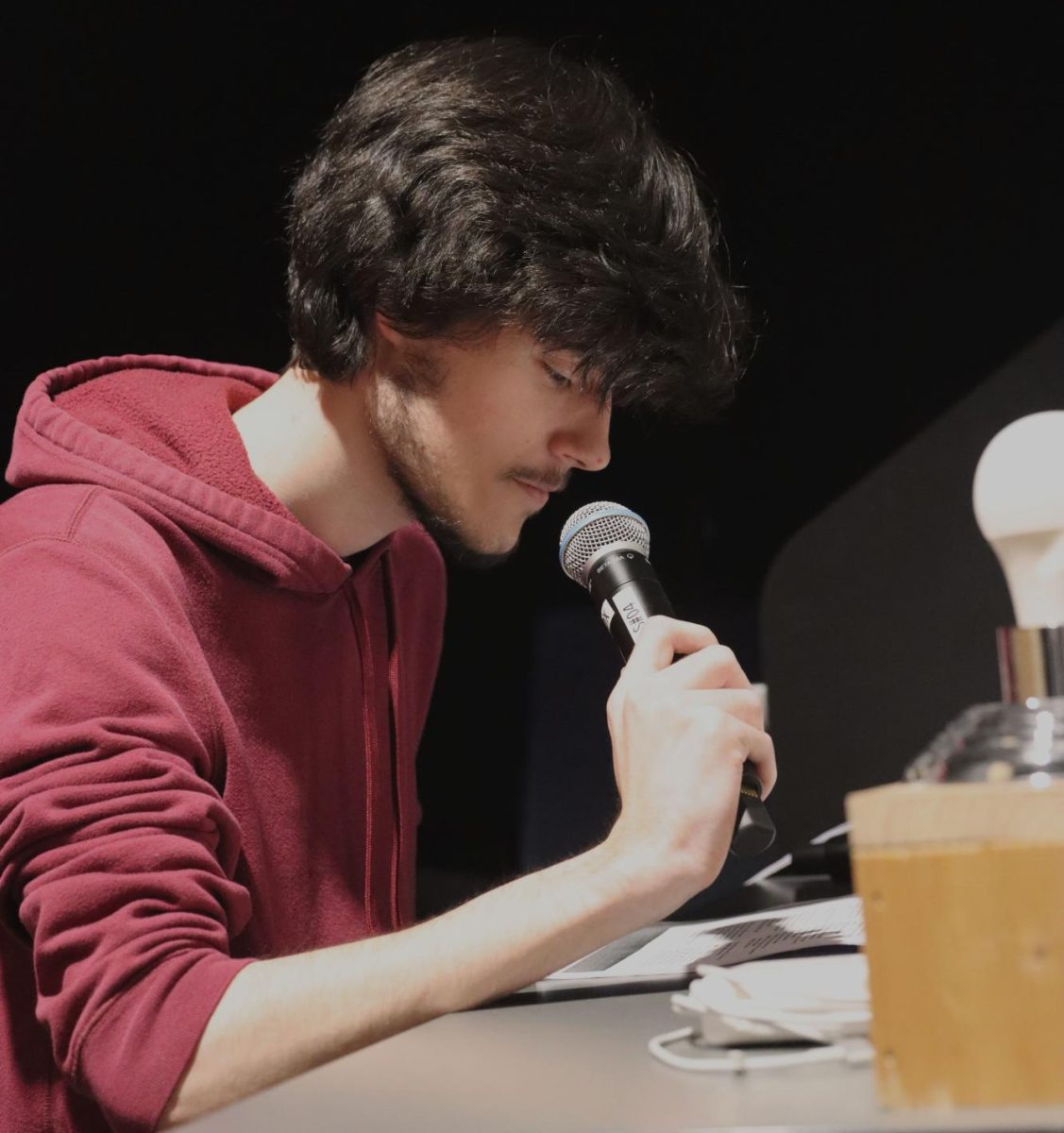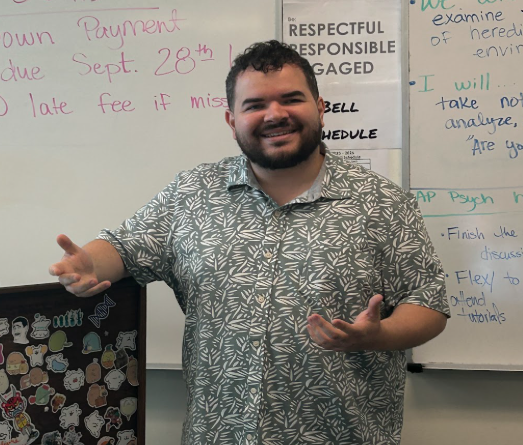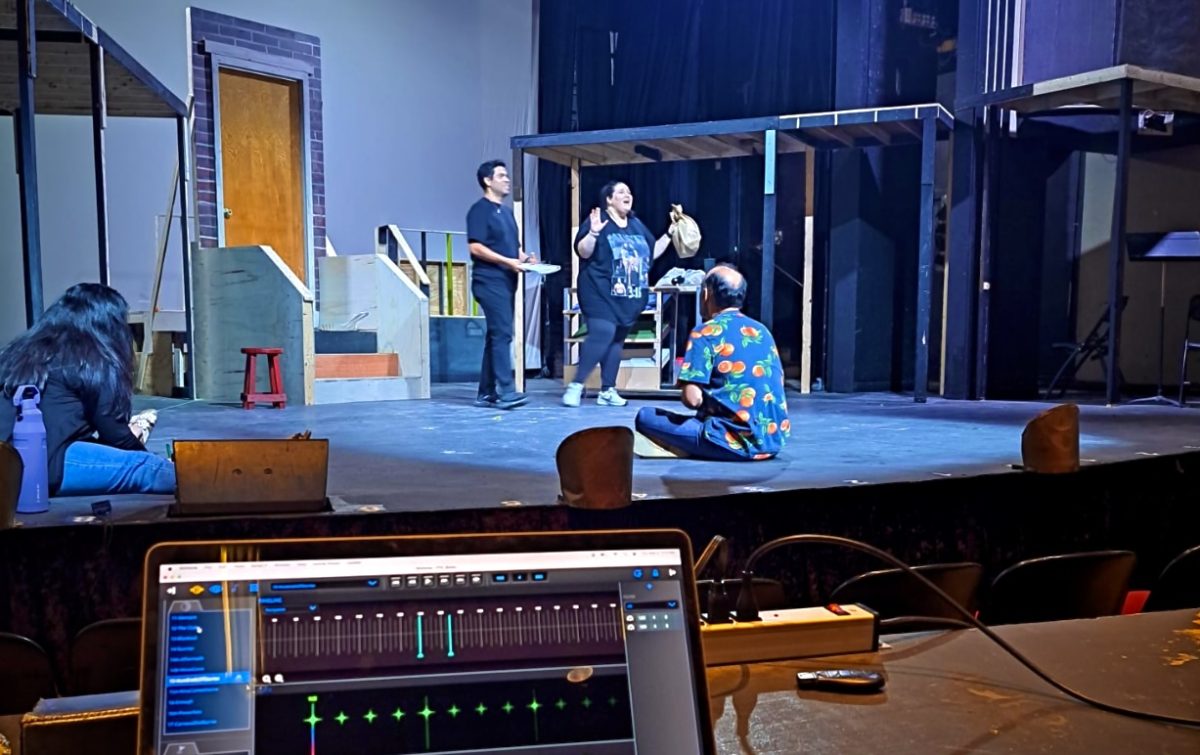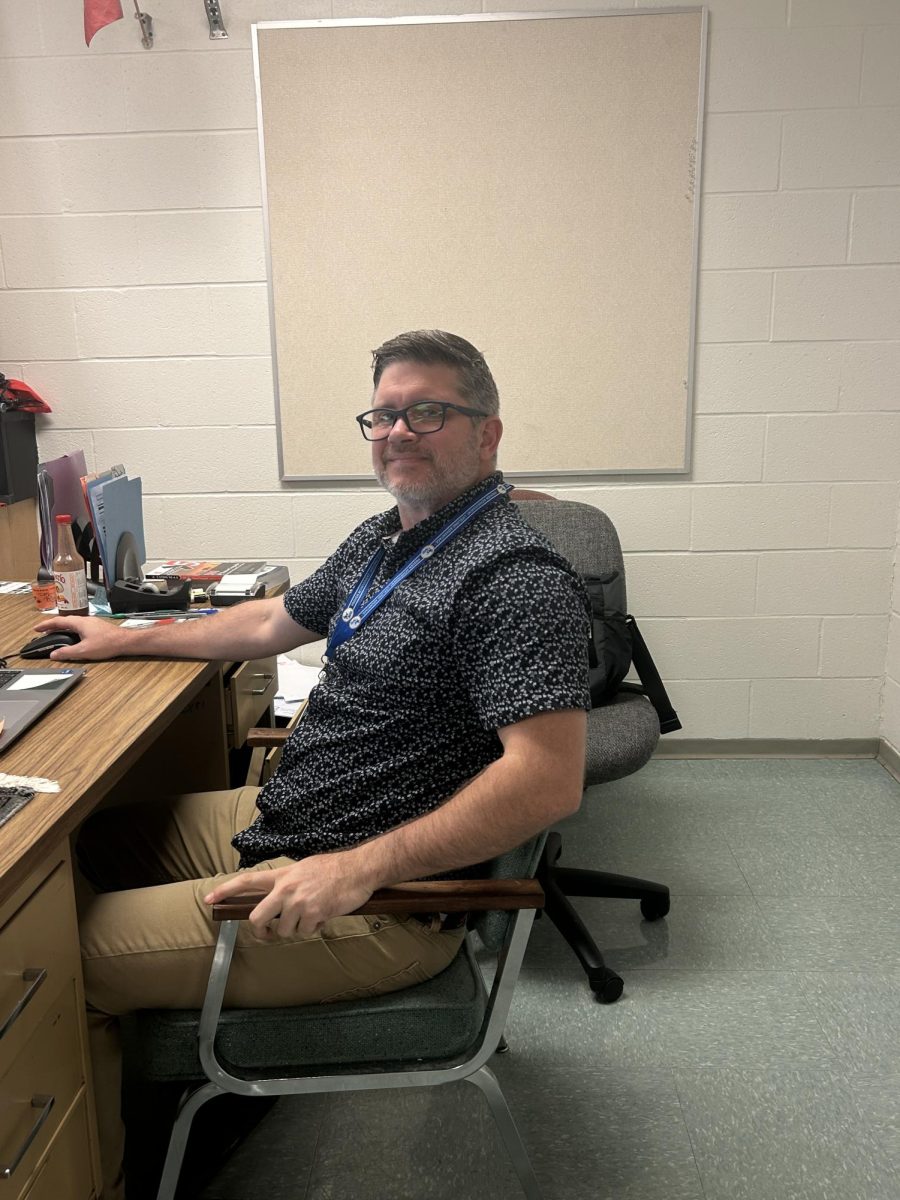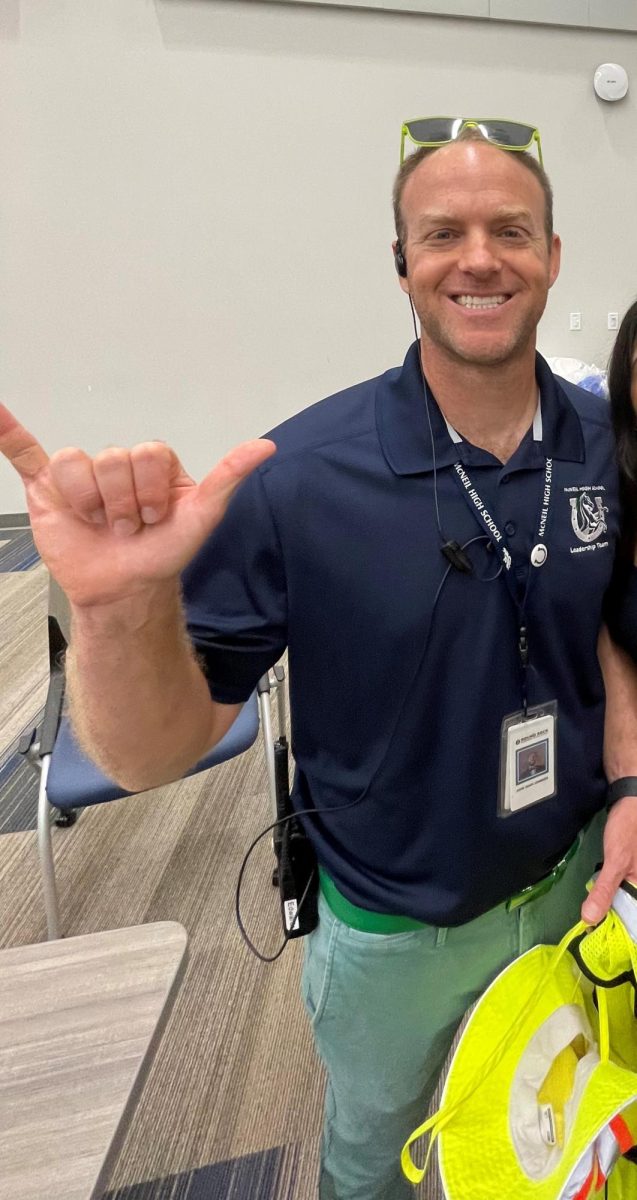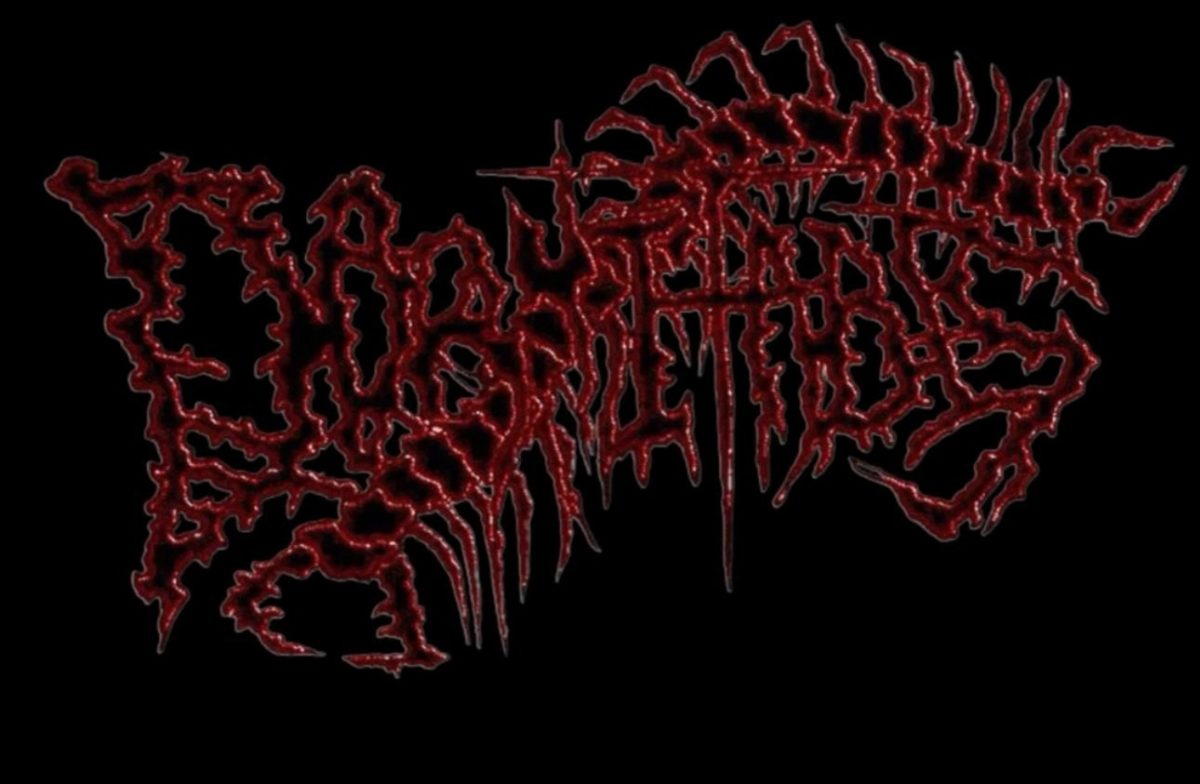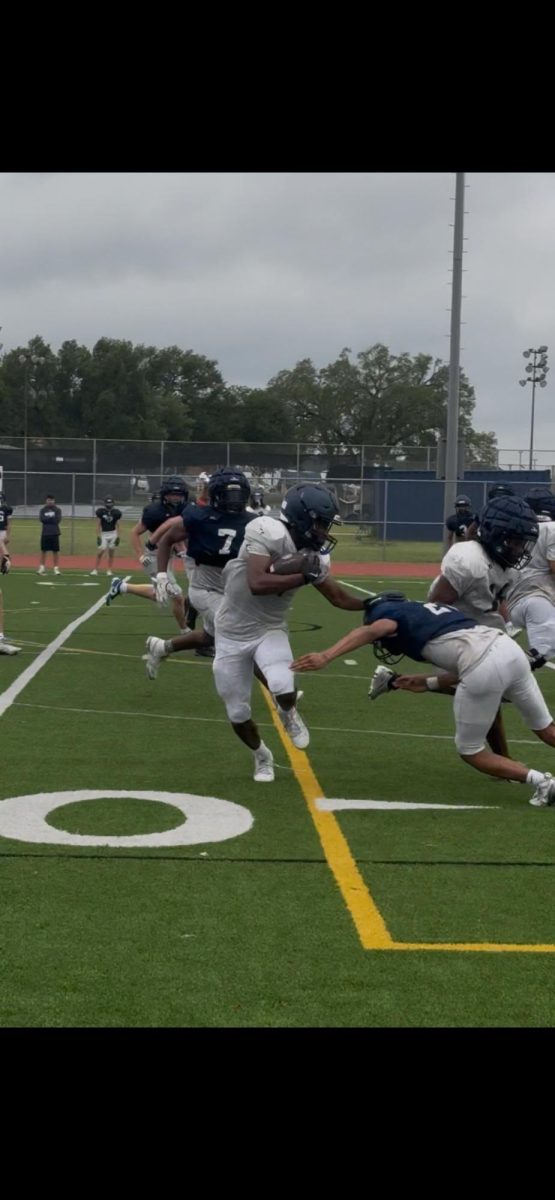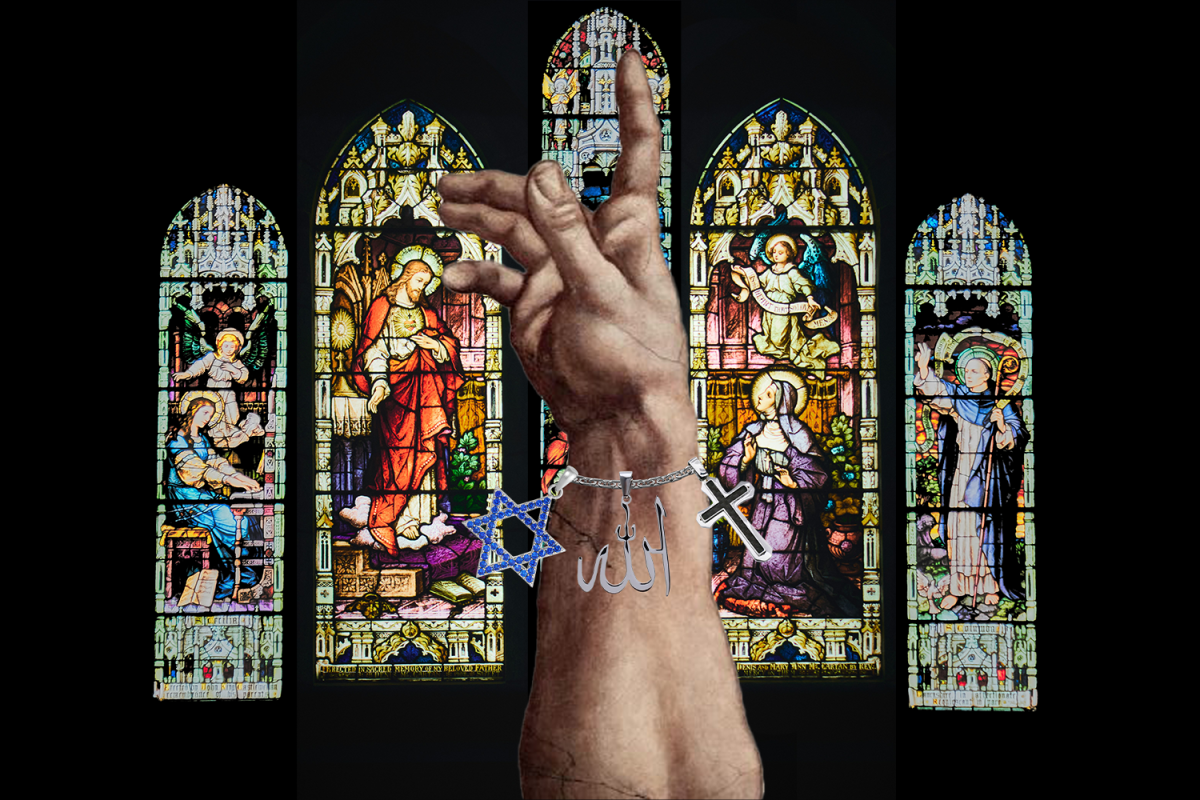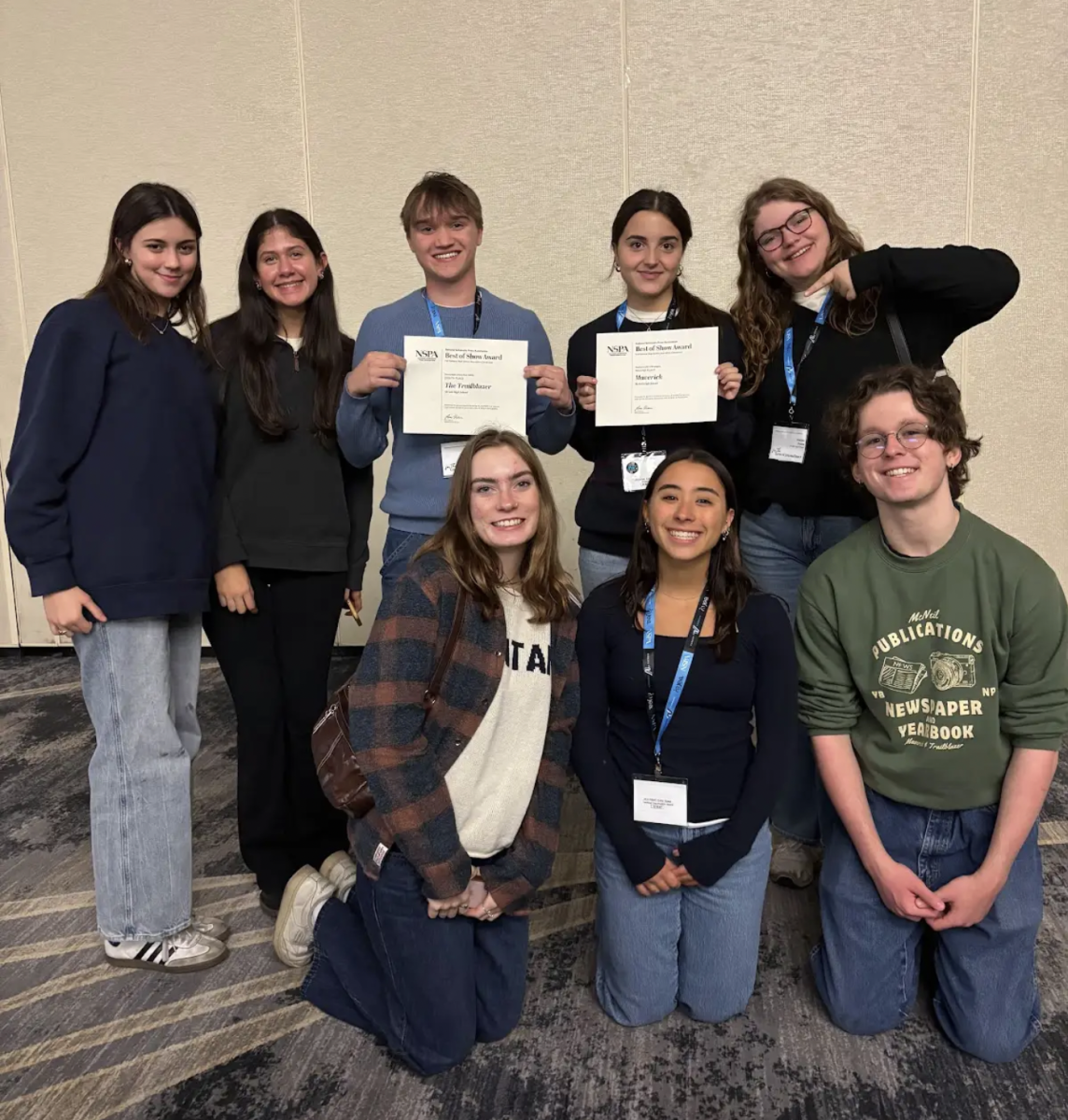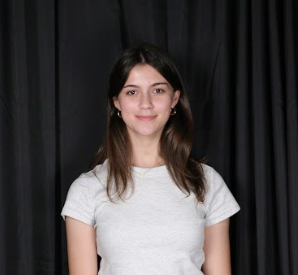“You’ll shoot your eye out kid…” he said in annoyance, still angry at his stage parents. After finishing his lines he quickly switches to his other role, co-stage manager. He checks that everything is in line for the production and then prepares for his next upcoming lines.
Senior Andrew Moran never planned to play a role in the theater’s production of “A Christmas Story”, being Moran’s second year in tech theater he planned to be stage manager again, but when the narrating role of “Ralph” was up for grabs, he decided to take it.
“I didn’t try out for the role of Ralph, it was more here, this is given to you,” Moran said. “It was completely out of the blue for me. I wanted to be the stage manager for the show. I signed up for that and the role was just kind of left alone, so I was like ‘sure.’”
Moran doesn’t do it alone though, sophomore Ruby Rhoads was originally given the position of assistant stage manager, but was promoted to co-stage manager after the amount of work she put in.
“There are definitely times where I feel bad for Ruby,” Moran said. “Where I am hyper diving into acting and I can’t get a second to go and do tech things I’m supposed to be doing. So she’s doing a lot of the heavy lifting.”
Balancing both of the roles has proven more difficult then Moran expected, but Rhoads has been a key factor in helping him through it.
“It’s been awkward. It’s been very hard. I’ve been mostly doing more acting than stage managing, so I’ve been leaning pretty heavily on my co-stage manager,” Moran said. “She’s good at it, because she’s more focused when we’re in rehearsals, taking down notes, jotting everything down, making sure that we know what’s going on with the show. I’m kind of there just for seniority, little scribbles kind of thing. But it’s pretty fun, a very delicate balance.”
Rhoads and Moran have to work alongside together to keep the production successful, sometimes it can feel difficult for them both, but they feel as if they benefit from each other’s help.
“I have to take the blocking notes because he can’t do that,” Rhoads said. “It’s kind of a mutualistic relationship because he can talk to the director in his free time, but I can take notes and kind of confirm with the students.”
At first, Rhoads struggled with the transition of doing some of the work for Moran, but over time she has been able to adjust to the change.
“It was pretty overwhelming at first, but I feel like I got kind of used to it,” Rhoads said. “I’m kind of like a liaison, but I also do have to notice different things about the show while I’m watching it.”
Moran believes his role is more manageable compared to others, due to him only using his voice, rather than physically being on stage like his castmates.
“Complete voiceover work and this is narration, so I don’t have blocking or anything like that,” Moran said. “I have vocal notes, but I don’t have the physicality to show any emotion or anything like that.”
During rehearsals where they do full runs, Moran focuses on his acting, during breaks or intermissions he switches to reviewing that everything is in place. Despite the amount of work he does, he is still able to balance his friendships with his team and have a good time.
“Most of our techies, specifically [in] this show, are our actors,” Moran said. “There are very few techies who are not on stage. We all just kind of hang out during rehearsals and we still, of course, do the rehearsal, but whenever there’s downtime and we’re not needed, we can still have fun with it.”
This being Moran’s first show, the experience has educated him on the process of performing and has led him to consider performing again in the future, although he believes being on stage might prove more difficult.
“You gotta remember where you go, what you say, remember the tonality, gotta wait for somebody else to say something so that you can return with a different line,” Moran said. “I don’t know whether [performing] actually on stage or behind the booth as of yet, but it might be fun.”
The main reason Moran decided to take the role was to try something new before the end of his senior year and the experience has led him to consider opportunities for the future.
“I think I have been more recently after this, looking into voice acting and what not,” Moran said. “Actually seeing what things that they do, so that I can try to incorporate it into the show, as well as for future reference, specifically for senior year just try stuff, because clocks ticking.”

